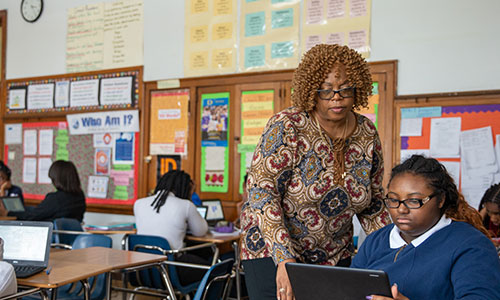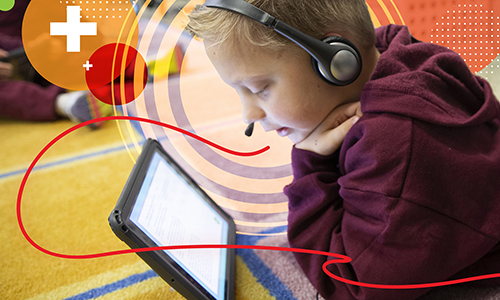

Brief
Increasing Fluency in Middle School Readers
This study examines the effects of a newly developed fluency protocol on historically marginalized students in three Grade 6 classrooms in a large urban school district. The protocol was designed for ease of use and does not require that educators have prior knowledge of reading instruction.
Topics: Education research, Insights & reports, Instructional strategies, Literacy


Brief
NWEA Response to April 2023 Zavitkovsky Paper
This brief is a response to Paul Zavitkovsky’s paper titled “Data Rich/Information Poor,” and includes NWEA’s high-level comments and concerns regarding Mr. Zavitkovsky’s claims. The brief highlights five areas that challenge the strength, validity, and quality of some of Mr. Zavitkosky’s “findings,” and as such, provide context for interpreting his results with caution and scrutiny.
Topics: Assessment, Education research
Products: MAP Growth


Brief
Equity: Definitions and Perspectives from U.S. Educators
A new study from NWEA features voices of U.S. teachers, school and district leaders providing their understanding and definition of equity, challenges and opportunities in implementing equity initiatives, impacts of the COVID disruptions on schools and recommendations for moving forward in a post-pandemic world.
Topics: Equity, Insights & reports, Professional learning


Brief
Explaining the Alignment of an Item to a Multidimensional Standard
Overview of how NWEA Science Content Specialists align items to multidimensional standards such as the Next Generation Science Standards.
Topics: Assessment, Science
Products: MAP Science


Brief
How can we support academic growth for English learners (ELs) who may have experienced disproportionate academic impacts from COVID-19? Recent NWEA research may help inform how federal ESSER funding can provide early intervention and extended school year support in the summer and after-school that can create sustainable change and further growth for ELs.
Topics: Assessment, Multilingual learners, Policy & advocacy
Products: MAP Growth


Brief
How can we support academic growth for students with disabilities (SWD) who may have experienced disproportionate academic impacts from COVID-19? Recent NWEA research may help inform how federal ESSER and IDEA funding can provide early intervention, extended school year support in the summer, and other evidence-based supports that can create sustainable change and further growth for SWD.
Topics: Education research, Multilingual learners, Policy & advocacy


Brief
5 ways to improve early literacy with professional learning
With a focus on formative assessment, providing feedback, encouraging student-led goal setting, and more, professional learning courses help teachers create a supportive environment for students.
Topics: Literacy
Products: Professional Learning